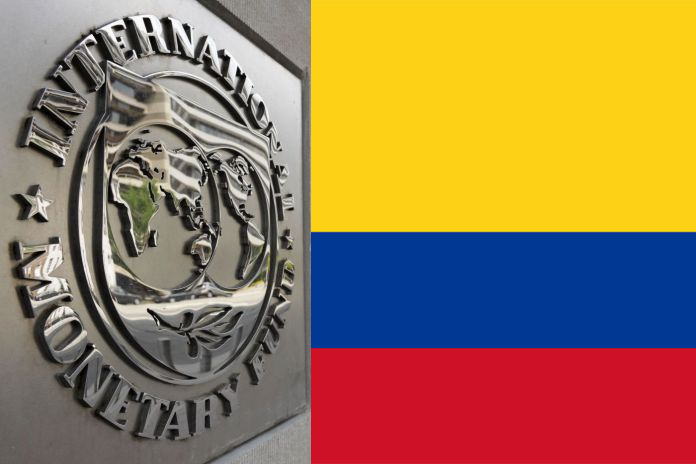-
-
- The IMF approved today a successor two-year arrangement for Colombia under the Flexible Credit Line (FCL), designed for crisis prevention, of about US$9.8 billion.
- Colombia qualifies for the FCL by virtue of its very strong economic fundamentals and institutional policy frameworks and track record of implementing very strong policies and commitment to maintaining such policies.
- Prior to the pandemic in 2020, Colombia had been on a path of gradually reducing access under its FCL arrangements, and the new arrangement resumes this path. The arrangement should boost market confidence, and combined with the comfortable level of international reserves, provide insurance against external downside risks.
-
By IMF Communications Department
WASHINGTON, USA – The executive board of the International Monetary Fund (IMF) approved a successor two-year arrangement for Colombia under the Flexible Credit Line (FCL) in an amount equivalent to SDR 7.1557 billion (about US$9.8 billion) and noted the cancellation by Colombia of the previous arrangement. The Colombian authorities stated their intention to treat the new arrangement as precautionary.
The FCL was established on March 24, 2009, as part of a major reform of the Fund’s lending framework (see Press Release No. 09/85). The FCL allows its recipients to draw on the credit line at any time and is designed to flexibly address both actual and potential balance of payments needs to help boost market confidence. Drawings under the FCL are not phased nor tied to ex-post conditionality as in regular IMF-supported programs. This large, upfront access with no ex-post conditionality is justified by the very strong policy fundamentals and institutional policy frameworks and sustained track records of countries that qualify for the FCL, which gives confidence that they will respond appropriately to the balance of payments difficulties that they are encountering or could encounter.
Colombia has maintained access to the FCL instrument since 2009, and this is the country’s ninth FCL arrangement. Prior to the pandemic in 2020, Colombia had been gradually lowering access in successive FCL arrangements. The arrangement approved on June 15, 2016 (see Press Release No. 16/279 ) was for an access amount equivalent to SDR 8.18 billion (about US$11.5 billion). The arrangement approved on May 25, 2018 ( see Press Release No. 18/196 ) was for an access amount equivalent to SDR 7.848 billion (about US$11.4 billion). The arrangement approved on May 1, 2020, was for the same level of access as the 2018 FCL arrangement (see Press Release No. 20/201 ) and later augmented on September 25, 2020 to SDR 12.267 billion (see Press Release No. 20/300 ) due to the pandemic.
Following the executive board’s discussion on Colombia, Antoinette Sayeh, deputy managing director and acting chair, made the following statement:
“Colombia has very strong economic fundamentals and policy frameworks anchored by a credible inflation targeting-regime, a solid medium-term fiscal framework, a flexible exchange rate, and effective financial sector supervision and regulation. The authorities remain firmly committed to maintaining very strong macroeconomic policies going forward. There is also broad consensus in Colombia on the importance of preserving very strong policy frameworks.
“Colombia also has a very strong track record of macroeconomic management, which allowed the authorities to deliver a comprehensive response to the pandemic, promote a steadfast economic recovery, continue to integrate Venezuelan migrants into Colombian society, and support rising living standards.
“With a robust recovery underway but risks tilted to the downside, Colombia has taken steps to normalize policies from a crisis footing and manage higher inflation, while strengthening public finances and reducing external imbalances. Meanwhile, international reserves remain adequate. The structural reform agenda rightly aims at fostering inclusive and sustainable growth and enhancing external competitiveness.
“Global risks remain elevated, but the nature of risks has changed, including due to heightened uncertainty related to the war in Ukraine and global inflationary pressures. Colombia remains vulnerable to external risks – including from a sharp rise in global risk premia and other external shocks. The new arrangement under the Flexible Credit Line will reinforce market confidence and provide added insurance against external risks. The authorities intend to continue to treat this new arrangement as precautionary and to gradually phase out use of the instrument, conditional on a reduction of global risks.”





